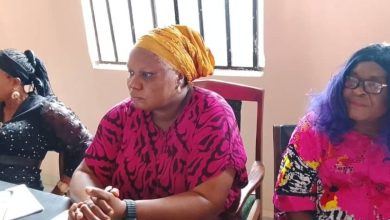UNICEF Seeks $20 Million Urgently to Combat Cholera Surge in Nigeria and West Africa
UNICEF launches $20 million appeal to fight deadly cholera outbreak sweeping Nigeria and West Africa.
Children face highest risk as flooding, poor sanitation, and rising cases fuel regional health crisis.
The United Nations Children’s Fund (UNICEF) has launched a $20 million emergency appeal to tackle the escalating cholera outbreak across Nigeria and several West and Central African countries. The appeal, issued on Wednesday, seeks to raise the funds within three months to scale up vital health and sanitation responses.
UNICEF warns that worsening rainfall, widespread flooding, and mass displacement are driving a sharp rise in infections, placing millions, particularly children, at increasing risk. As of the end of June, Nigeria has reported 3,109 suspected cases and 86 deaths across 34 states, making it the second most affected country in the region.
“This outbreak has become endemic in Nigeria, and the threat is growing,” said Gilles Fagninou, UNICEF Regional Director for West and Central Africa. He stressed the urgency of deploying funding to strengthen health services, water and sanitation infrastructure, hygiene promotion, and community engagement efforts.
The agency highlighted that an estimated 80,000 children are at high risk of infection as the rainy season peaks. Cholera, a waterborne disease caused by ingesting contaminated food or water, can cause severe dehydration and death within hours if left untreated.
“Young children are especially vulnerable due to poor sanitation, unsafe drinking water, and limited access to healthcare,” Fagninou noted.
The Democratic Republic of the Congo (DRC) remains the hardest-hit, recording over 38,000 cases and 951 deaths in July alone. Children under the age of five account for nearly 26% of the DRC’s total cases, raising fears of the worst cholera crisis in the region since 2017.
Other countries battling ongoing outbreaks include Chad, Ghana, Côte d’Ivoire, the Republic of Congo, and Togo. Nations like Niger, Liberia, Benin, Cameroon, and the Central African Republic are under heightened surveillance for possible flare-ups due to existing vulnerabilities.
UNICEF has already deployed emergency supplies, including water purification kits, sanitation materials, and oral rehydration solutions, to affected areas. The agency is also backing vaccination drives, boosting preparedness and early response systems, and promoting hygiene awareness at the community level.
“We aim to ensure that children, particularly those in remote and underserved areas, are not left behind in this response,” Fagninou said.
The organization called on international donors and partners to help close the funding gap and prevent the outbreak from becoming a full-blown regional health emergency.



